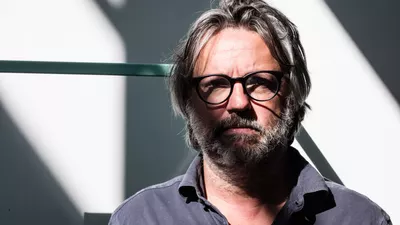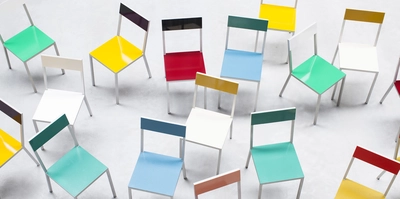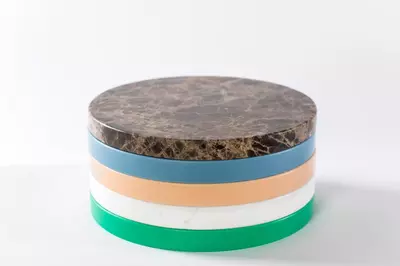
Please install a more recent version of your browser.
1 June 2017
3 minutes read
After acquiring a degree in industrial engineering, Axel Van Den Bossche entered the world of entrepreneurship in 1987. He and his brother Serge took over their mother’s flower shop together and rechristened it Serax, a name coined by combining the first few letters of their names. In 1992 their cousin Frank Lambert joined the team and 25 years after the start of the business, Serge retired from the company. Thirty years later, Serax is internationally renowned for its 4,000-plus affordable design products in interior design, tableware, lighting and of course flower pots. The company has experienced significant growth, both through product expansion and through the acquisition of labels.

CEO Axel Van Den Bossche of Serax © Bart Kiggen
“The fact that Serax is now active in various sectors is the result of a string of chance events that developed organically. But that’s something you should be ready for as a company. First and foremost, you have to be strong enough in your current field. You’ve also got to have your processes settled and under control, your marketing systematised, and your after-sales service needs to be resolved within 24 hours. Your whole company has to operate seamlessly, and in reality, it even has to outperform all the rest. At that point you can see if you have the financial clout to be active in new areas.”
“As an entrepreneur you have to realise new projects to increase your turnover and generate profits, so that you can invest those profits in new projects.”
“Sometimes things go wrong and that’s a shame. The bigger you get, the bigger the mistakes get. However, you can limit the impact of those mistakes by not taking too many overly big risks, getting a constant stream of feedback and comments from people and questioning everything you do.”

From the collection of Serax © Bart Kiggen
“We already have a few mergers and acquisitions behind us, and these have always been partnerships that developed organically. As a result of my passion for the subject, I speak frequently with other labels and designers. You meet up, you get to know each other, and if things click, you discuss possibilities of working together.”
“Partnerships are born out of a shared desire and passion to do things.”
“We were on the lookout and they were prepared to sell. It’s that simple. We then buy up the stock and the production and we incorporate the marketing, management and sales in our own management. However, the label itself continues to operate as a separate brand, and the designers stay on board as well. In this way, the company that we take over keeps its individuality, but can grow faster under our Serax umbrella.”
“These possibilities are also only available if your own label is up and running well. Mergers and acquisitions are investments, in terms of both time and money. If your company structure is in place and your company can operate on its own, then you have the capacity to free up those resources.”

Muller Van Severen for Valerie Objects

Muller Van Severen for Valerie Objects
“In a merger or acquisition, it is however important that you take your image and perception into account. That means some thought also needs to go into this. Our new ‘Valerie Objects’ brand is a partnership between ourselves and Veerle Wenes from the Valerie Traan gallery, and is positioned completely differently to Serax. With it we are focusing on the high-end market by working with high-end designers. There are only ten shops in Belgium that include these products in their range. That really does not belong in the Serax label.”
“Not everyone wants to associate with Serax. That’s why we have multiple brands.”
“However, that does not mean that a takeover within the same market isn’t worth thinking about. The ‘Janssen and Co’ and ‘Colect’ collections fit within the same market as Serax and therefore form a nice complement to our own collections. They do continue to exist as a separate label, but are able to grow more quickly as a result of our involvement. We provide additional expertise, an international market, marketing and production support and increased financial security. For us, it is an extra addition to our range, but under a different label. It’s a win-win.”
Cookies saved